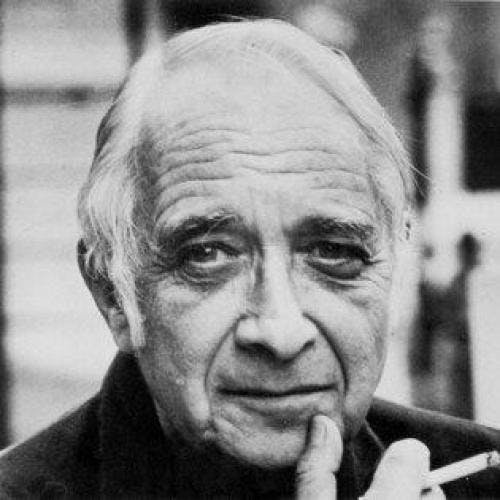
A review of The Life of George Eliot by Emilie and Georges Romieu.
Although this is a mediocre book, one cannot count as one of its faults that its authors have scarcely noticed the novels of George Eliot—that they felt it their “duty to assign a more important place to the pulsings of her heart, the throbbings of her thought and the vibrations of her soul.” For to us today George Eliot must present a biographical and not a critical problem. The question of why her work has lost relevance and charm, after enchanting a generation for which Mudie’s could not stock her volumes fast enough, which quoted her in Parliament and compared her to Dante and Shakespeare, has been pretty well settled. That George Eliot failed to make a proper synthesis of her intellectual and her imaginative views of the world—this has been the consensus of critical opinion ever since the natural reaction against her set in.
But that reaction coincided approximately with the promulgation, most notably made by Oscar Wilde, of the creed that art must be aristocratically non-moral, and it was upon George Eliot’s opposed theory of art that all the blame for her failure fell. It was declared dangerous for an artist to have an intellectual view of life, with its implication of didactic and moral purpose, and because George Eliot had that view, her imaginative view was said to have suffered. From this conclusion our generation, many of whose critics desire to find purpose and point of view in art and (as Mr. Gerald Sykes pointed out recently in The New Republic) are glad to accept books that “preach,” will probably dissent. It can no longer be glibly said that George Eliot’s theory of art was wrong in itself; we must rather find the cause of failure in her practice of that theory—in her personality, her biography.
From that biography one fact looms in explanation—her religion. It was once rather original to say that “after all” George Eliot was religious; then religion would be subtly defined to include all good or artistic people. “After all” meant after all her reading of Hennell, Strauss, Feuerbach, Spencer, Comte, the rational disturbers of faith. But though these men influenced her to a rational renunciation of religion, there was an influence stronger than theirs. One has but to remember how, in her novels, London or Florence may lie dead under her hand but how Coventry is always alive, to realize that her Coventry youth was the most impressive time of her life. She was then most passionate and alive as she was then most unhappy and confused. The influences of that time never left her, and chief among them was her religion. If rationally she renounced it, actually she merely translated it, as Carlyle translated Calvinism into transcendentalism, into the terms of current philosophy. She always suspected the disturbers of others’ faith; she yearned always, she tells us, “to all the religions of the world.” Culture replaced devotional reading, quotations replaced texts, but religion remained.
And the very lack of synthesis of idea and thing which we find in her work was the chief characteristic of that religion. From its provincial evangelicalism she learned to put an unreal emphasis upon the consequences of the trivial act. It taught her to see all human affairs, including contemporary political change, as worked out exclusively in terms of individual conscience. It taught her to see morality as an a-priori shell into which action must fit. It served to prevent her from seeing people or things, so that whatever has moral significance, whether it be a picture, a city or a character, immediately becomes dead for her, and only the trivial and non-significant has life.
But if as a writer she is irrevocably separated from us, as a person she is still, with her stricken, Florentine face, most interesting. She deserves a better biography than the Romieus have given her. Based on J.W. Cross’s selection of her letters and journals, it seeks to “humanize” but merely sentimentalizes that material. Devoted to the thesis that George Eliot was “above all, a woman,” that, indeed, “she was Woman,” it fortunately does not indulge in sexological guesswork. But it inflates and melodramatizes certain episodes beyond truth, and invents others. There is, unfortunately, no authority for the Romieus’ story of Herbert Spencer’s dinosaurian libertinism: they have it that he was a necessitarian Lothario who, after he had sadistically enjoyed toying with George Eliot’s heart, abandoned her when a flipped coin decided him not to marry her.